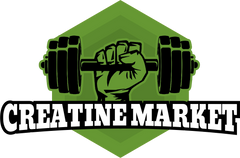Wondering about how long creatine takes to kick in? The length of time creatine takes to work for most people is roughly 5 days. In this blog post, we'll explain why it doesn't work instantly, and some methods to help expedite the kick-in time of using creatine.
How Long Does Creatine Take to Work?
Understanding the timeline for creatine's effectiveness is crucial for anyone starting supplementation. While creatine stands as one of the most well-researched supplements available, its effects aren't instantaneous, and knowing what to expect can help you maximize its benefits.
Initial Timeline for Creatine Effects
The journey to experiencing creatine's full benefits typically spans several weeks. During the first few days of supplementation, your body begins the process of increasing muscle creatine stores. However, noticeable effects usually take longer to manifest as your muscles gradually saturate with creatine.
Why Doesn't Creatine Work Instantly?
Many newcomers to creatine supplementation expect immediate results, similar to pre-workout supplements. However, creatine works through a gradual process of muscle saturation. Your body needs time to build up sufficient creatine stores in muscle tissue before you experience the full performance benefits. This biological process cannot be rushed, as it depends on your body's natural ability to absorb and store creatine.
Loading Phase vs. Regular Dosing
The traditional loading phase involves taking 20 grams of creatine daily for 5-7 days, split into multiple doses. This approach can accelerate muscle saturation, potentially leading to quicker results. However, taking a standard daily dose of 5 grams will eventually achieve the same results, just over a longer period of about 3-4 weeks.
How to Make Creatine Kick-in Faster
While respecting the body's natural absorption rates, several strategies can optimize creatine uptake. Combining creatine with fast-digesting carbohydrates can enhance absorption through insulin response. Taking creatine post-workout, when muscles are most receptive to nutrients, may also improve uptake. Additionally, maintaining proper hydration supports optimal creatine utilization.
First Month Progress Timeline
Week 1: Initial water retention and slight weight gain
Week 2: Beginning of strength improvements
Week 3: Noticeable performance enhancements
Week 4: Full benefits typically achieved

How to Measure Creatine's Effectiveness
How do you know when the creatine is actually working? Rather than relying on subjective feelings, track specific metrics to gauge creatine's effectiveness. Monitor your strength gains, workout volume, and recovery time between sets. These measurable indicators provide concrete evidence of creatine's impact on your performance.
Expected Results From Creatine
- Once your muscles reach saturation, you can typically expect:
- Increased strength during resistance training
- Enhanced power output during high-intensity activities
- Improved muscle endurance during repetitive movements
- Better recovery between sets
Signs Creatine Is Working
Physical indicators that creatine is taking effect include:
- Initial weight gain from water retention
- Increased workout capacity
- Improved strength in compound movements
- Better muscle endurance during high-rep sets
Long-Term Benefits and Maintenance
After achieving muscle saturation, maintaining creatine's benefits requires consistent supplementation. The standard maintenance dose of 5 grams daily suffices for most individuals. Missing occasional doses won't immediately impact performance, but regular supplementation ensures optimal results.
Individual Response Variations to Creatine
Genetic factors, muscle mass, dietary habits, and training intensity all influence how quickly you respond to creatine. Some individuals notice benefits within days of starting supplementation, while others may take several weeks to experience noticeable improvements.
When to Take Creatine for Best Results
Timing your creatine intake around workouts can potentially enhance its effectiveness. Post-workout supplementation may provide slight advantages, but consistency in daily intake matters more than specific timing. The key is finding a supplementation schedule that you can maintain consistently.
Common Mistakes Affecting Creatine Efficiency
Several factors can impede creatine's effectiveness:
- Inconsistent supplementation
- Inadequate water intake
- Poor quality creatine products
- Insufficient overall nutrition
Conclusion
Creatine typically takes 3-4 weeks to reach full effectiveness when taking a standard 5-gram daily dose, or 5-7 days with a loading protocol. While the wait for results requires patience, creatine's proven benefits make it worth the investment of time. Focus on consistency in supplementation, proper hydration, and regular training to maximize creatine's impact on your performance and results.
Remember that sustainable progress comes from consistent, long-term supplementation combined with proper training and nutrition. While it's natural to want instant results, understanding and accepting creatine's timeline helps set realistic expectations and ensures optimal benefits from your supplementation regimen.



